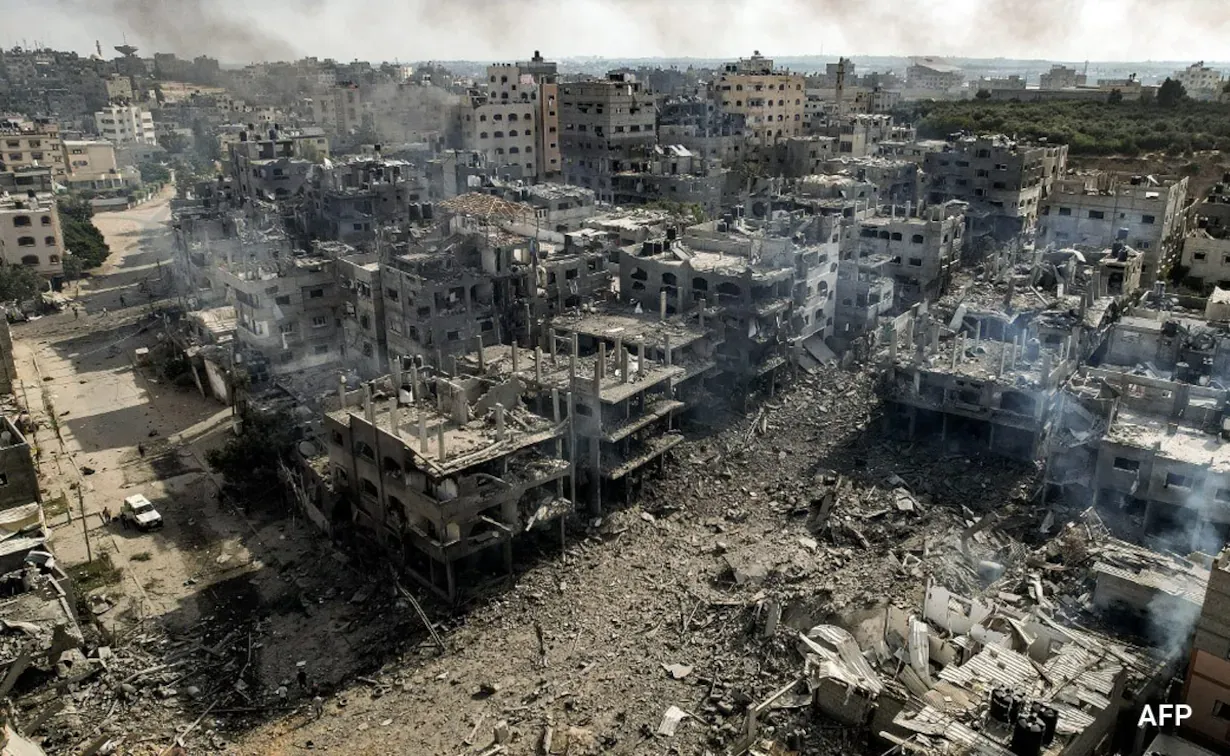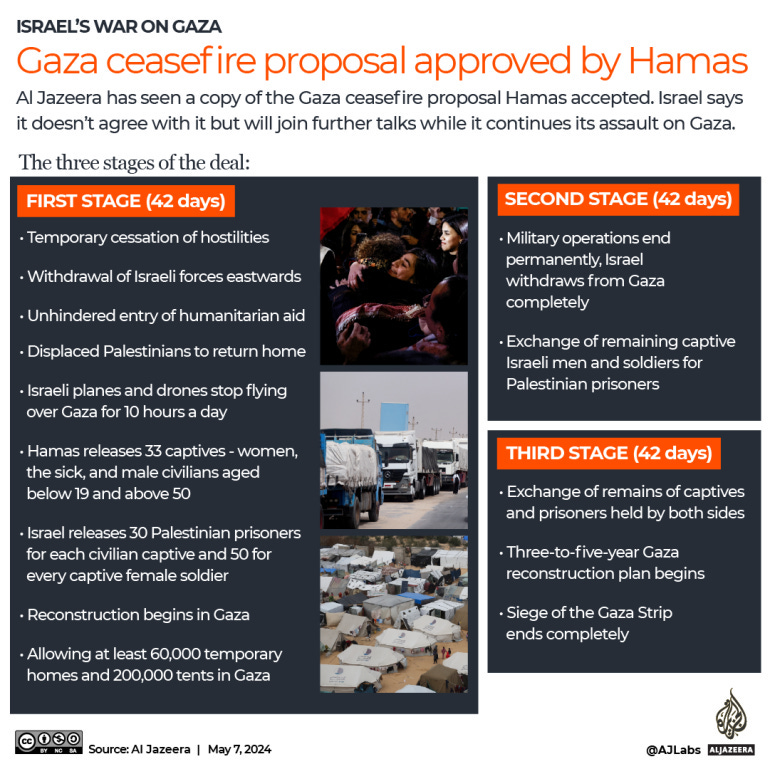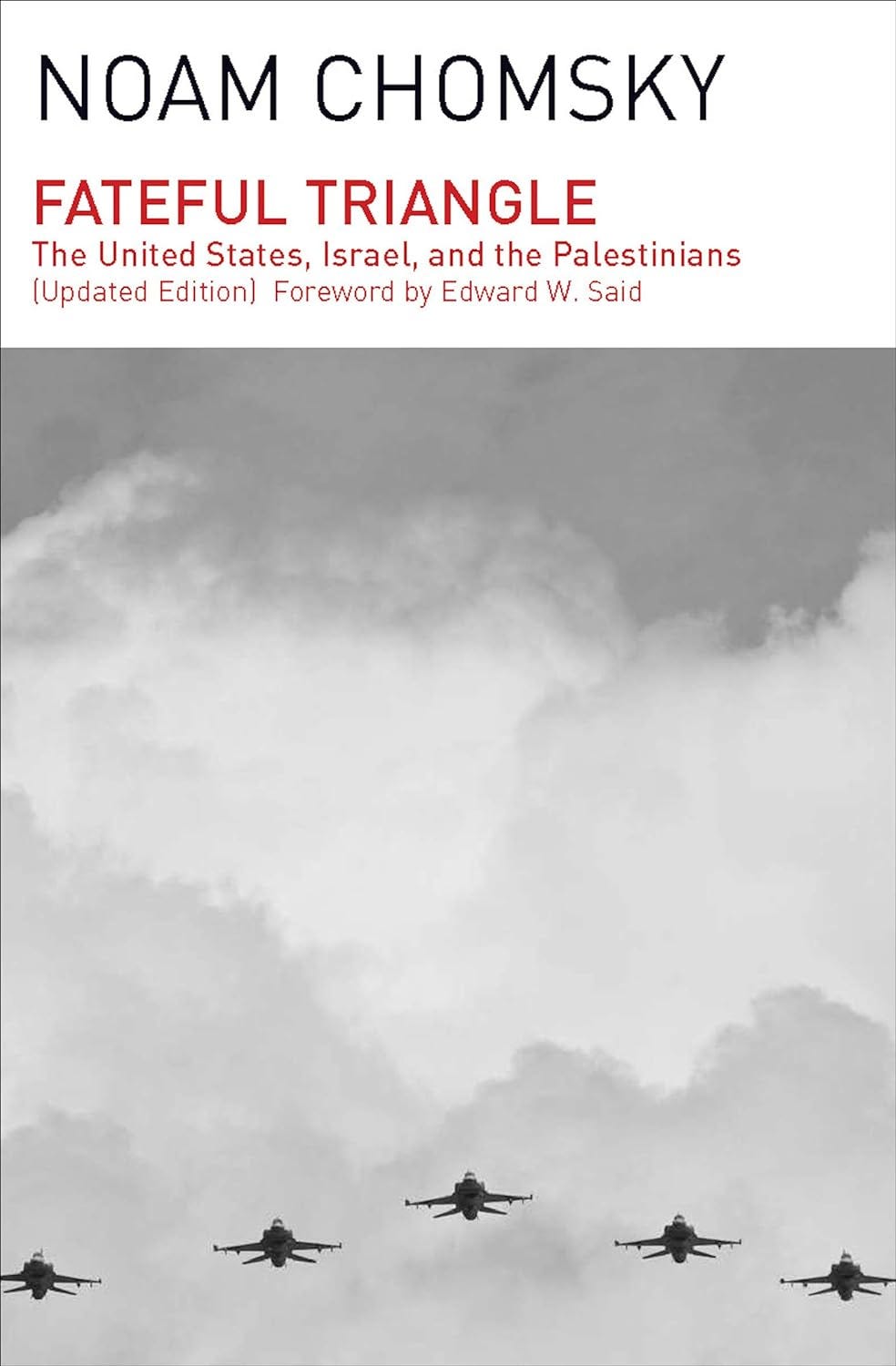The Truth Among Ourselves
As the president spoke of the Nazi’s attempted genocide, Israel’s taking of the Rafah Crossing in Southern Gaza signified a new assault on what international critics are increasingly characterizing as an ongoing genocide of Palestinians perpetrated by the Israelis.

History has a way of knocking humanity over the head with ironies. As Israel and the IDF took control of the Rafah Crossing into Gaza, the world, and especially Israel, was taking note of Holocaust Remembrance Day. The attack by Hamas terrorists on October 7th was the deadliest day for Jews since World War II put an end to the Final Solution, which made consideration of the historic tragedies even more poignant. There is anti-semitism afoot, internationally, as well as verbal attacks on Islamic interests. At the U.S. Holocaust Memorial Museum’s Annual Days of Remembrance, the American President said, “I’m calling on all Americans to stand united against anti-semitism and hate, in all its forms.”
Unveiling a new set of initiatives to combat what is viewed as “rising anti-semitism” in the U.S., the President described what he called the “ancient hatred of Jews” that was “brought to life” by the October 7th Hamas attacks on Israel. As the president spoke of the Nazi’s attempted genocide, Israel’s taking of the Rafah Crossing in Southern Gaza signified a new assault on what international critics are increasingly characterizing as an ongoing genocide of Palestinians perpetrated by the Israelis. President Biden had previously said an invasion of Rafah was the crossing of a red line for his administration, but at his commemorative speech, he backed that line up a bit and said securing the location did not violate his conditions regarding Israel’s military in a region where one million Palestinians are said to be living mostly homeless.
There is no denying that anti-semitism has arisen as a consequence of Israel’s invasion and the loss of what is now said to be almost 35,000 Palestinian lives in Gaza; 70 percent of which are reportedly women and children. Campus protests around this country are largely focused on the loss of civilian life and the absolute destruction of Gaza’s housing and infrastructure. Student protestors are voicing support for the Palestinian people, in most cases, and are not expressing anti-semitic politics, but there has been a conflation of those two messages, which has confused the general public. It should be obvious but apparently is not, that protesting the IDF’s disproportionate assault on Gaza is not a manifestation of anti-semitism. It is a defense of the rights of Palestinian citizens.
Campus protests are also an effort to get the attention of the presidential administration, just as they were during the Vietnam Era. The President continues to get congressional support for deploying weapons and money to Israel while making gentle demands that Prime Minister Bibi Netanyahu give more consideration to the lives of innocents. There is a circular absurdity that goes beyond irony, however, as Israel invades Rafah to continue what increasingly looks like a genocide on the same day Jews remember the Nazi attempt to wipe them from the face of the Earth, and that happens even as the U.S. President warns Israel against the invasion while he continues to supply weapons and money to support what amounts to a slaughter.
Huh?
Israel’s actions have transcended the rank evil of the Hamas’ attack on October 7th. There seems to be no limit to the number of dead Palestinians it will accept as long as all Hamas fighters are killed. No war in history, though, has ever ended with the enemy’s entire army eliminated from the field. Hamas apparently offered a ceasefire proposal to Israel on the eve of the Rafah invasion but negotiators for the Israelis let it be publicly known they saw it as just an attempt to make Hamas “look good.” Everybody looks good, though, when the killing stops and terms for peace can be defined. Israeli and American diplomats are said to have been surprised by the offer but are willing to continue talks. The IDF, however, will not cease fire in Rafah during any negotiations. Talk and shoot seems to have low odds of success as a peace strategy.

As morally culpable as Mr. Biden might be with his “ironclad” commitment to Israel’s defense, his feared political injury seems not to have materialized among young voters. In a Generation Lab survey for Axios, only 13 percent of college students identified the Israel-Gaza conflict as their most important concern, well below issues like health care, educational funding, economic fairness, climate change, racial justice, gun control, and immigration. The poll of 1250 college students might also reveal an ignorance of Israel’s history and the actual horrors still unfolding in Gaza. Media coverage has been difficult to impossible and videos and photos have been mostly transmitted via social media rather than national outlets.
Part of the reason Americans are more tolerant of Israel’s actions might have a little to do with our own analogous history. Manifest Destiny wiped out this country’s indigenous peoples in order to establish settlements on the lands the natives had historically occupied. Little difference, other than weaponry, exists between U.S. westward expansion and the political and military endeavors of Israel since the state was founded in 1948. In his book, The Fateful Triangle: The United States, Israel, and the Palestinians, author Noam Chomsky quotes Israel’s founder, David Ben-Gurion, during an internal discussion, as acknowledging the political effort to take Palestine away and create the Jewish state, which continues to push borders and Palestinians out of their homelands.

“In our political argument abroad,” Ben-Gurion said, “we minimize Arab opposition to us, but let us not ignore the truth among ourselves. Politically, we are the aggressors and they defend themselves. The country is theirs because they inhabit it, whereas we want to come here and settle down, and in their view, we want to take away from them their country while we are still outside. Behind the terrorism is a movement, which, though primitive, is not devoid of idealism and self-sacrifice. "
Chomsky adds further context to the Arab perspective that has not changed in three-quarters of a century of strife by explaining how they rejected the idea that they had a moral obligation to sacrifice their land to compensate “for the crimes committed by Europeans against the Jews.” The idea, he notes, had taken hold in the West, but, he writes, Arabs, “perhaps wondered why a more appropriate response would not have been to remove the population of Bavaria and turn it into a Jewish state—or given the self-righteous moralizing they hear from the United States, why the project could not have been carried out in Massachusetts or New York.”
Foreign policy only tends to have an impact on American politics when it relates to a war involving American troops, and the loss of their lives. In the present Mideast conflict, the slaughter has been contained and information controlled. An estimated 140 journalists have been killed, an average of five a week, a number not mentioned by U.S. politicians on World Press Freedom Day, which was only 48 hours before Holocaust Remembrance Day. President Biden made no reference to those lost lives during the White House Correspondents Dinner. He only talks about the importance of ending the war while not pressuring Israel to cease fire. An average of 88 Palestinian children die each day as he equivocates.
And, at times, no one seems to care.